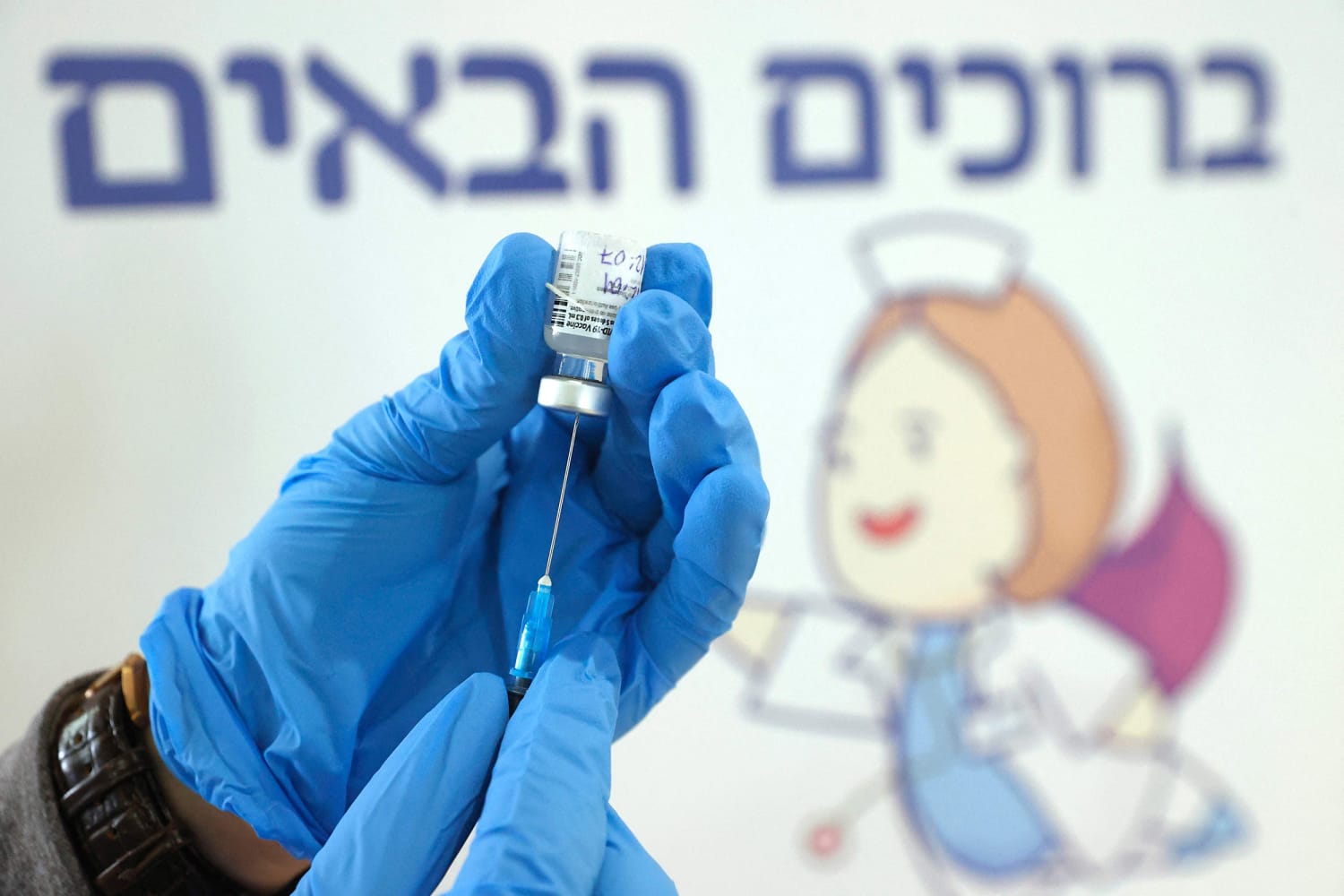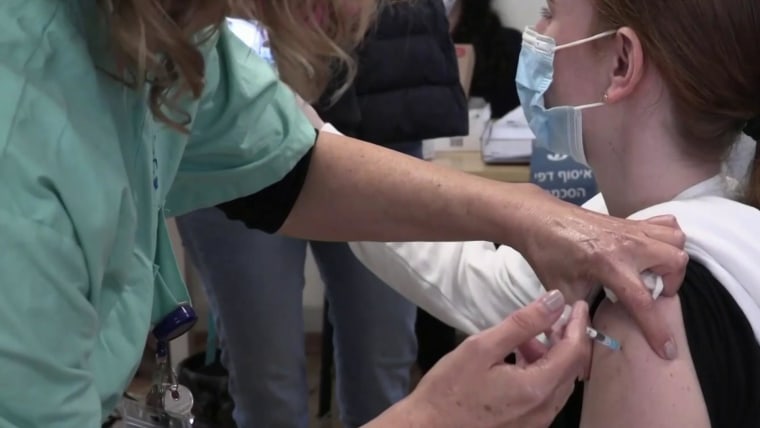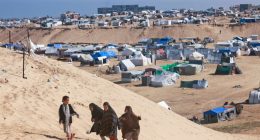TEL AVIV — Israel has suspended a controversial plan to use coronavirus vaccines to win allies abroad before giving them to most Palestinians after the initiative was hit with legal challenges.
Half of Israeli citizens have now received at least one vaccination dose, the country’s health minister said Friday, the highest figure in the world.
With his country beginning to look at a future beyond Covid-19 restrictions, Prime Minister Benjamin Netanyahu ordered tens of thousands of vaccines be sent to nations in Africa, Europe and Latin America as a diplomatic gesture.
The plan illustrates how vaccines have become a valuable bargaining chip at the international negotiating table. But it drew widespread condemnation as Palestinians have been forced to wait for vaccinations.
There was also fierce criticism from opponents inside Netanyahu’s fragile coalition government.
Benny Gantz, Israel’s defense minister, accused the prime minister of going “behind the backs” of his Cabinet and making the decision without consulting them.
On Thursday, Israel’s attorney general announced a review into whether Netanyahu has the legal authority to make the decision on his own. “The attorney general is examining the claim that vaccines were transferred to foreign countries without authority,” a spokesman said.
The government thus decided to “freeze any action” on vaccine shipments, the spokesman added.
Gantz hailed the freeze.
“Netanyahu’s move was made in an undemocratic manner, bypassing the procedures. If there is a reason to transfer vaccines to different countries at the expense of Israeli citizens — this will be decided only in the appropriate forums,” he said.
Netanyahu told the Israel Hayom newspaper Friday that he had talks with 30 countries about sharing doses and that he had ensured the giveaways would not affect vaccinations for Israelis.
“Everyone wants to know how we caused this miracle and everyone wants to take part in it, whether with knowledge or assistance,” he said.
Israel did not reveal which countries would get vaccines but Israeli media reported Netanyahu originally planned to send up to 100,000 doses to more than a dozen nations — some of them already allies and others countries it is trying to woo.
Batches of 5,000 doses have already arrived in Guatemala and Honduras. Both countries have agreed to follow former President Donald Trump’s lead and move their embassies in Israel from Tel Aviv to Jerusalem, a small but significant diplomatic victory for Netanyahu.
“Thanks to the people of Israel and our friend Prime Minister Benjamin Netanyahu for the donation of 5,000 vaccines!” Honduran PresidentJuan Orlando Hernández said on Twitter on Thursday.
China, Russia and India have also engaged in so-called vaccine diplomacy by sending doses to friendly nations, at times prioritizing that above their own people.
But as Israel shipped doses to the other side of the world, the vast majority of Palestinians are still waiting to be vaccinated.
Israel has given just 2,000 doses of the Moderna vaccine to the Palestinian Authority so far, according to most recent figures, and has promised a further 3,000. Russia has donated 10,000 doses of its Sputnik V vaccine to the Palestinians.
That leaves the Palestinians far short of the amount they need to vaccinate the roughly 5 million people who live in the West Bank and Gaza.
The first available doses are being given to Palestinian health care workers.
Riyad al-Malki, the Palestinian foreign minister, said it was “political blackmail and an immoral measure” for Israel to exchange vaccines in return for diplomatic favors.
That criticism was echoed in the United States and other countries.
“It is outrageous that Netanyahu would use spare vaccines to reward his foreign allies while so many Palestinians in the occupied territories are still waiting,” Sen. Bernie Sanders, I-Vt.,said earlier this week.
Israel argues that under the 1993 Oslo Accord, the Palestinians are responsible for securing their own vaccines. But United Nations officials and human rights groups say that as the occupying power, Israel is obligated under the Geneva Conventions to provide them.
Israel is heading for elections March 23 and Netanyahu has made his handling of the vaccine rollout, as well as his prowess on the world stage, a centerpiece of his re-election campaign.
Polls show Netanyahu’s Likud party on course to win more seats than any other party, but it is unclear if he will be able to forge a majority coalition government that could help him avoid legal consequences from an ongoing corruption trial.
Source: | This article originally belongs to Nbcnews.com










